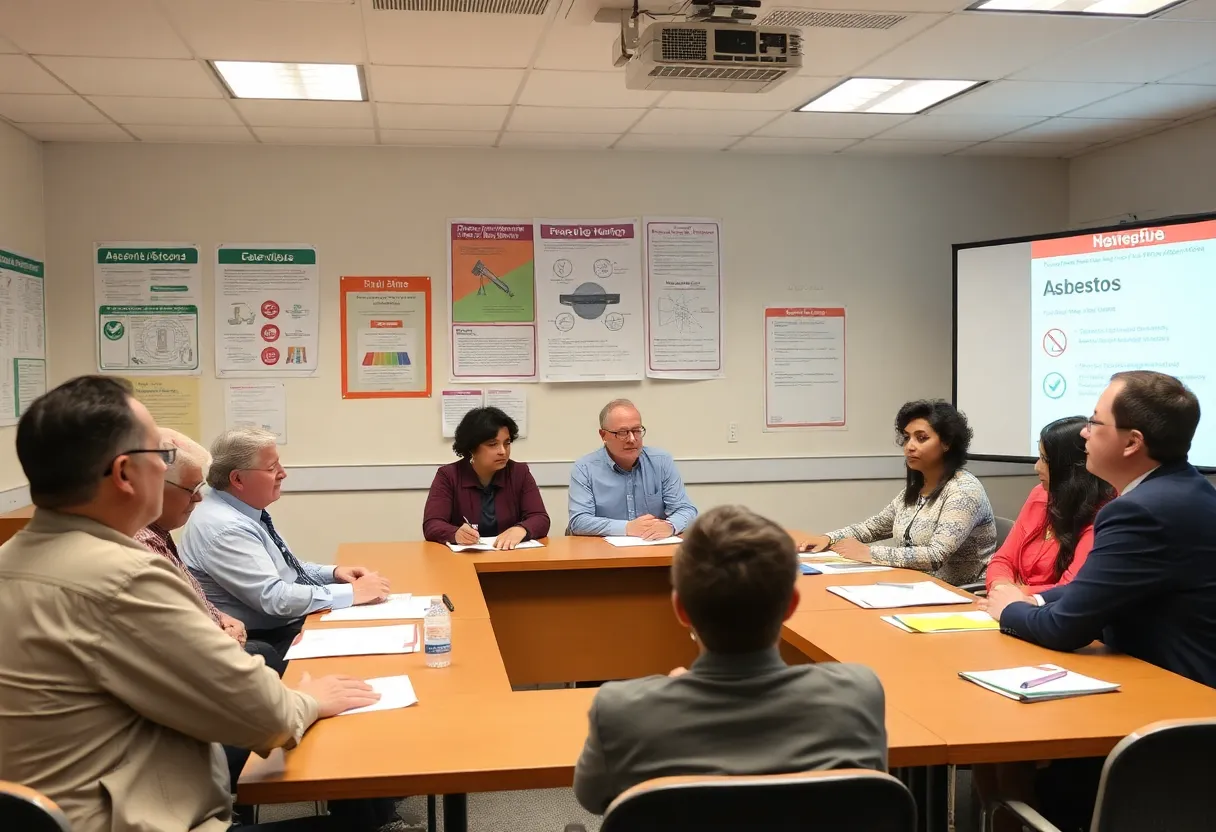News Summary
A five-hour Philadelphia school board meeting resulted in significant decisions regarding asbestos management and the future of several charter schools.
The Philadelphia School Board’s Historic 5-Hour Meeting Packed with Crucial Decisions
The Philadelphia school board convened for a lengthy five-hour monthly meeting that brought significant revelations and crucial decisions regarding asbestos management in school buildings and the future of several charter schools in the district. This marked a pivotal moment as the board unanimously approved a deferred prosecution agreement with the U.S. Department of Justice, a legal arrangement that relates to the district’s handling of asbestos-containing materials within its facilities. This unprecedented step puts the Philadelphia school district in the national spotlight as the first district ever facing criminal charges for environmental violations.
Asbestos Management: A National First
This agreement signals a changing era for the school district as it grapples with past mismanagement regarding harmful materials, highlighting the importance of student safety in educational environments. The school board’s actions have raised eyebrows nationwide, emphasizing that school safety and environmental compliance cannot be overlooked.
Charter Schools in the Crosshairs
In addition to addressing asbestos, discussions during the marathon meeting turned to six charter schools facing potential nonrenewal. The board has instructed the charter schools office to prepare notices of nonrenewal for KIPP North Philadelphia and People for People, amidst ongoing scrutiny concerning their academic performances. The fate of these schools appears precarious as board members weigh the realities of school performance against funding implications.
Academic Performance Under the Microscope
The academic metrics for various charter schools showcased the fluctuating successes within the district. KIPP North Philadelphia, for instance, received a dismal score of 23%, flagged for high student suspension rates, rendering it ineligible for a one-year renewal. On the other hand, Russell Byers charter school, despite previously showing high performance, managed only 41% on academic metrics, raising serious questions about its viability moving forward.
These developments reflect a significant normalized trend in charter school evaluations—emphasizing the need for accountability in educational outcomes. People for People fared worse, scoring just 29%, escalating their chances of nonrenewal. Conversely, some schools like Deep Roots, despite earning a 4/10 on academic metrics, met growth standards and are holding a recommendation for a five-year renewal—but under strict conditions.
Infrastructure and Resource Discussions
Board president, Reggie Streater, acknowledged the importance of community feedback, especially regarding resource allocation across the district. Significant disparities were highlighted, with Superintendent Tony Watlington providing insight into the district’s facilities planning process. Some changes proposed included potential reductions in standalone middle schools and a recommendation for school closures, indicating a serious reassessment of school structures in the coming fall.
Amidst these discussions, the board faced public pushback on a proposed wellness policy concerning guaranteed access to essential bathroom and water breaks for students, resulting in the postponement of further deliberation. Community members echoed their support for schools, demonstrating a robust engagement from stakeholders within the district.
Changing Times for Education in Philadelphia
The attendance rates reported indicated an improving trend, with student dropouts through April 2025 totaling 1,411, a marked improvement from the previous year’s figures. Student attendance for May stood at 68%, while teacher attendance was at 79%, reflecting a gradual recovery in engagement—both from students and educators alike.
As the board navigates through these challenges, the emphasis remains on finding a balance between educational innovation and addressing the realities facing neighborhood schools. The discussions during the meeting underscored the complexities of managing charter schools against a backdrop of community needs, academic performance, and ultimately, the safety and future of the educational landscape in Philadelphia.
Deeper Dive: News & Info About This Topic
HERE Resources
Philadelphia School District Charged in Groundbreaking Asbestos Case
Chrysotile Asbestos Ban Under Review: A Risky Rethink?
Major Legal Victory in Asbestos Case: $17.2 Million Verdict Against Georgia-Pacific
The Ongoing Battle Over Asbestos: EPA’s New Moves Cast Doubts
The Looming Shadow of Asbestos: Health Risks and Regulatory Challenges
Chrysotile Asbestos Ban Faces Uncertain Future Under Trump Administration
New Study Reveals Asbestos Exposure Thresholds Linked to Mesothelioma Risk
Philadelphia School District Enters Asbestos Management Agreement to Avoid Prosecution
Philadelphia School District Under Fire for Asbestos Management
Philadelphia School District Faces Criminal Charges Over Asbestos Mismanagement
Additional Resources
- Inquirer: Philadelphia School Board Handles Asbestos and Charter Schools
- Wikipedia: Asbestos
- Inquirer: Charter School Renewals Overview
- Google Search: Charter Schools Philadelphia
- PhillyVoice: Philadelphia Charter School Approval
- Google Scholar: Charter Schools Performance
- Inquirer: New Charters and Immigration Impacts
- Encyclopedia Britannica: Education Reform



















